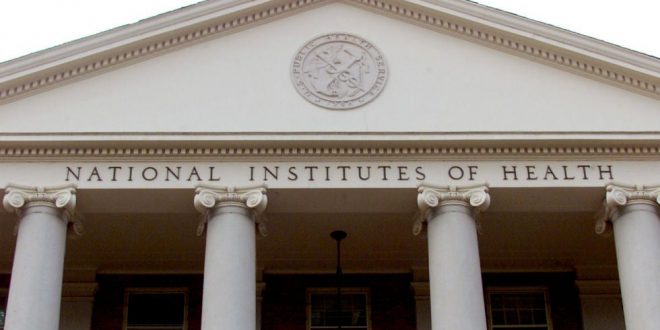The National Institutes of Health (NIH) has halted its clinical trial of hydroxychloroquine, saying that while there are no ill side effects, the anti-Malaria drug provides no benefit to COVID-19 patients.
“A data and safety monitoring board (DSMB) met late Friday and determined that while there was no harm, the study drug was very unlikely to be beneficial to hospitalized patients with COVID-19,” the NIH said in a statement.
It added: “The data from this study indicate that this drug provided no additional benefit compared to placebo control for the treatment of COVID-19 in hospitalized patients.”
Hydroxychloroquine, which has long been used to combat malaria, was heralded by many, including President Trump Donald John TrumpProtesters tear down, burn statue of Confederate general in DC US attorney in NYC who spearheaded probes of Trump allies refuses to leave as DOJ pushes ouster Trump to host 4th of July event despite pleas from lawmakers to cancel MORE, as a possible treatment option to the coronavirus pandemic until a working vaccine becomes available.
Donald John TrumpProtesters tear down, burn statue of Confederate general in DC US attorney in NYC who spearheaded probes of Trump allies refuses to leave as DOJ pushes ouster Trump to host 4th of July event despite pleas from lawmakers to cancel MORE, as a possible treatment option to the coronavirus pandemic until a working vaccine becomes available.
The trial started in Nashville at Vanderbilt University Medical Center in April, NIH noted. More than 470 people were part of the study at its end.
NIH explained why hydroxychloroquine was first examined as a potential treatment for COVID-19.
“Hydroxychloroquine is used to treat malaria and rheumatoid conditions such as arthritis,” the NIH said. “In various studies, the drug had demonstrated antiviral activity, an ability to modify the activity of the immune system, and it has an established safety profile at appropriate doses, leading to the hypothesis that it may have also been useful in the treatment of COVID-19.”
NIH said that COVID-19 more often than not represents as “an acute respiratory infection,” which can lead to severe damage to the body’s other organs, including the blood.
Nearly 8.7 million people around the world have tested positive for the virus, with over 2 million cases coming from the U.S. alone. In the U.S., nearly 120,000 people have died from the virus.
The race to create a viable vaccine is well underway, but health experts have warned that a vaccine might not be ready until next summer.
Many heralded hydroxychloroquine as a possible treatment option to COVID-19, including Trump, before the NIH had begun its trial.
 The Argus Report Read about it!
The Argus Report Read about it!





